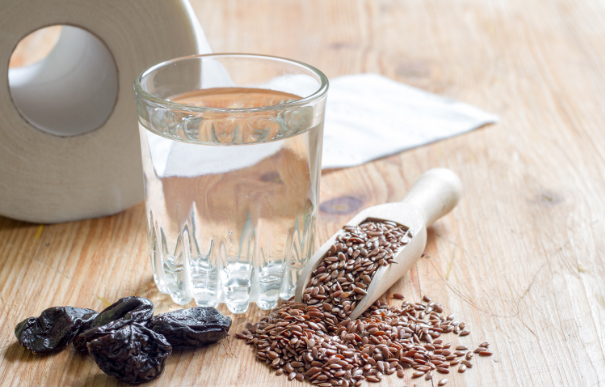What is Constipation?
Constipation is having less than three bowel movements per week, with pain or difficulty.
What causes Constipation?
There are several factors that lead to constipation:
- A low fibre diet is a big contributing factor, the main function of fibre is to give bulk and volume to your stools, by consuming a low fibre stool volume is decreased, resulting in constipation.
- Certain medications will have the undesired side effect of constipation.
- Pregnancy: Due to certain medication and hormonal changes, it is common for pregnant women to experience constipation.
- The aging population, this is mainly due to decreased mobility, poor dentures or other age-related conditions.
- Neurological disorders
- Intestinal obstruction

What are the complications of Constipation?
Constipation results in complications such as haemorrhoids, diverticulitis, and anal fissures.
What are the signs and symptoms of Constipation?
The main symptoms of constipation are:
- Passing stools with difficulty
- Having dry hard stools
- Experiencing stomach pain and cramps
- Feeling bloated and nauseous
Constipation Diagnosis
Our dietitian will ask you about your bowel movements frequency, dietary habits, water intake, exercise regimen and family history, these factors are all relevant markers when diagnosing constipation.
What are the possible treatments for Constipation?
The good news treatment is can be changed by simply your own willing and changing aspects of your life, including eating more high fibre food, ensuring proper hydration with drinking water frequently, exercising regularly, and monitoring your progress.
FAQ’s
Can I use medication to treat my constipation?
Depending on your case, it is best to try to resolve your constipation issue by resorting to dietary and lifestyle modifications. Some medications may cause your intestines to become lazy.
What are some foods that can help treat my constipation?
High fibre foods such as apples and kiwi with their skin contain a lot of fibre. Also dried fruits such as dates and dried prunes also have a high fibre content.

